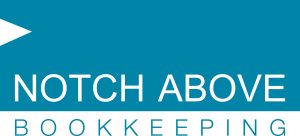How Small Business Owners Strike A Work-Life Balance In Business
I always like to reflect on my business, especially around this time of the year as Christmas approaches. As a small business owner it’s a perfect time to take a breather and ask the most important question:
“Are you happy with your work-life balance?”
I would put this question above dollars and cents because I believe when your life is balanced, you can excel further in business. But I know firsthand that striking the right balance requires commitment and effort. All too often, business owners forget to take care of the biggest asset in their business – themselves!
Here are my 4 tips to staying sane and happy while running a business.
1. Set a goal to find balance
Although it sounds counterintuitive to add another checkbox to your growing to-do list, you need to make this a high-priority goal. This is because you will easily fall back into your old habit of overworking, worrying too much and saying “no” to doing new things.
Make it a goal to stop working when time is up, or when you’ve done all you can for the day. Commit to activities you love and do it more often. You should ask yourself every now and then, whether you are happy with your work-life balance. If not, do something about it. Over time, living a balanced life becomes second nature to you.
Therefore, before you leap into the new year with open arms, promise yourself that you will try to preserve your sanity by balancing your work with other beautiful things in life.
2. Outsource what you’re not good at
It could be anything from bookkeeping to marketing. Ideally, you should focus on growing your business and other things you are good at. We’ve relieved many businesses of their bookkeeping work, so they can concentrate fully on their products and services.
I also outsource tasks that I have no time for or expertise in such as website updates and marketing materials. Although I’m great at finance and bookkeeping, my team does my accounts payable, so I can focus on strategic work such as cash flow forecasting with my clients.
The key takeaway here is you need to start asking for help. Nobody is great at everything. With just 24 hours in a day, you need to use it wisely.
3. Set time to recharge
It doesn’t have to be a month-long holiday in the Caribbean – though that sounds ideal – it could be as simple as 15 minutes to meditate, sip your coffee or call your loved ones far away. Try to set aside some time every day to spend with your family and friends or to do what you love. Watch your favourite show, pick up a hobby or go for a quick weekend getaway.
In fact, “balance” is one of our key values at Notch Above Bookkeeping. I encourage my team to go on holidays to avoid burning out at the office. For myself, I make sure I focus 100% on my family and friends when I’m not working. We need to switch off from work every day, regardless of how busy we are.
4. Surround yourself with good people
This covers your staff, family and friends. It takes a village to raise a child, and a business is almost like a baby. Hire the right people who will help and contribute to your company. For your business to thrive, you need to find people in your life who will support you through thick and thin. And always remember to show how much you appreciate them. What better way to show your gratitude than during Christmas?
Happy Holidays!
Free Bookkeeping Systems Check-Up
Take our quick quiz to find out how to get more cash and time back in your life.
Start the Quiz
Specialising in Xero bookkeeping, Notch Above is a Brisbane bookkeeper and BAS Agent located in Alderley that offers Xero setup, as well as training and ongoing support. Notch Above can take care of all the bookkeeping tasks you would rather not do, like bank reconciliations, supplier payments, payroll services, debtor control and BAS returns.
Like us now on Facebook
Follow us now on Twitter
Connect with me on LinkedIn
Visit our Website









